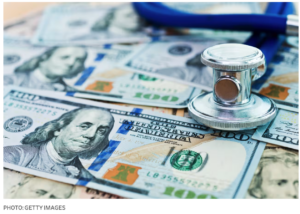
In Part I of this series, we discussed cell phone addiction; a growing problem in our digital world. There is evidence this problem is widespread and based on similar neuroscience to other addictive behaviors like gambling or shopping.
Dr. Gregory Jantz, a mental health specialist who treats additive disorders in Edmonds, Washington, tell us there are many types of phone addiction. Here are some of the different categories of addiction based on how the phone is used he has been able to identify:
Social Media
This form of addiction revolves around compulsive use of platforms like Facebook, Instagram, Tik Tok, and X. Users spend hours browsing feeds, posting content, and seeking validation through likes, comments, and followers. Individuals with this addiction are seeking the approval of their peers.
Gaming
Mobile gaming has surged in popularity, and some users find themselves hooked on games designed to offer endless levels or challenges. Games like Candy Crush, Clash of Clans, and Call of Duty are notorious for fostering compulsive gaming behavior.
Information
Some people are addicted to consuming endless streams of information. They feel a need to constantly stay updated with the latest news, trends, or knowledge, often spending hours browsing news sites, Reddit, or Quora.
Texting and Messaging
The compulsion to constantly check messages, respond immediately to texts, or engage in endless conversations through messaging apps like WhatsApp or Snapchat is another form of addiction. The need for instant communication and fear of missing out on conversations fuel this behavior.
Gambling
With mobile apps for casinos, sports betting, and online poker just a tap away, users can gamble without having to travel or even log on to a desktop computer. Gambling apps employ psychological techniques similar to those used in mobile games to keep users engaged. Through variable reward and payout algorithms, players experience intermittent wins that rigger dopamine release and reinforce the urge to continue gambling.
How can phone addiction or digital dependency affect your life?
Mental and Emotional Health
Dr. Jantz tells us numerous studies published in scientific journals have demonstrated the link between digital device addiction and mental health issues, including severe depression, anxiety, and even suicidal ideation. One study has even described this as “heroin for millennials.”
Social Isolation
Many individuals find themselves preferring virtual interactions over face-to-face communication, leading to a breakdown in real-world social skills and increased feelings of loneliness. The illusion of being connected through texting and social media often replaces meaningful, in-person connections, leaving individuals feeling more isolated despite being constantly online.
Relationship Strain
When one partner is glued to the phone during conversations or shared activities, it can lead to feelings of neglect and disconnection. This can cause tension and contribute to the breakdown of relationships, especially if phone use becomes a substitute for real interaction.
Productivity Decline
Constant notifications, combined with the urge to check for updates, makes it difficult to accomplish tasks. Research shows that multi-tasking can reduce efficiency and increase cognitive load, leading to decreased performance.
Sleep Disruption
Many people check their phones right before bed or wake up in the middle of the night to browse social media or answer texts. This habit interferes with sleep quality, leading to fatigue and diminished cognitive function.
Fear of Missing Out
People with this form of addiction are constantly checking for updates or messages to avoid missing something important or interesting. Additionally, seeing the “highlight reels” of others on social media contributes to feelings of inadequacy and loneliness.
(Note: For information on how to overcome phone addiction or digital dependency, read my next blog.)


